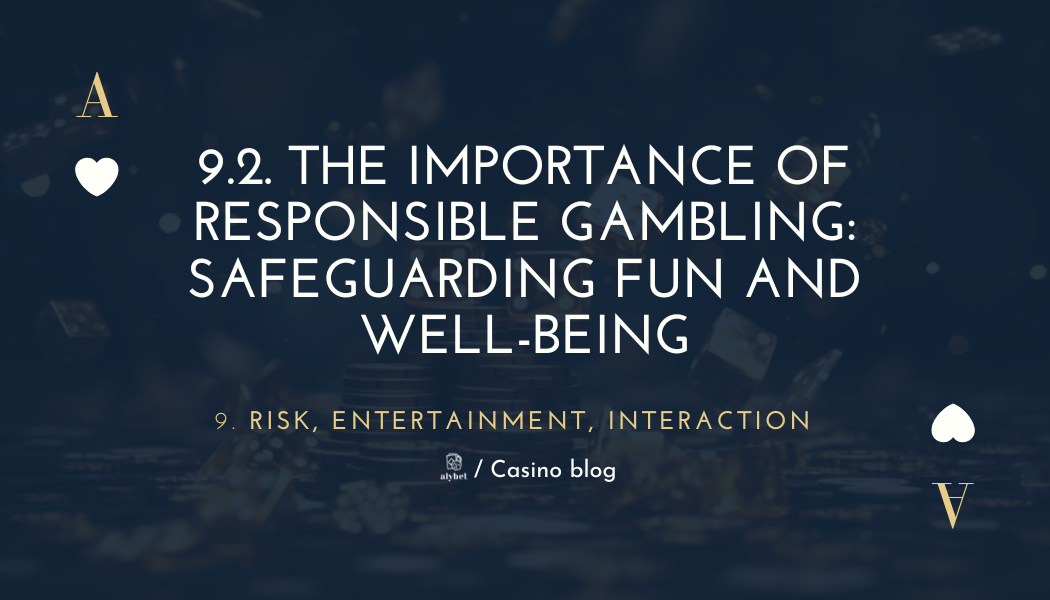Responsible gambling is a crucial aspect of enjoying casino games and sports betting while minimizing potential harm to individuals and society. It promotes a healthy and sustainable approach to gambling, ensuring that it remains a form of entertainment rather than a destructive force.
Why Responsible Gambling Matters
Personal Well-being
- Financial Health: Responsible gambling helps individuals manage their finances effectively, preventing them from overspending and falling into debt.
- Mental and Emotional Health: It safeguards mental and emotional well-being by preventing the development of gambling addiction, which can lead to depression, anxiety, and other mental health issues.
- Relationships: Responsible gambling helps maintain healthy relationships with family and friends, as excessive gambling can strain or damage these bonds.
Community Well-being
- Reduced Social Costs: Problem gambling can lead to various social costs, such as increased crime, family breakdown, and strain on public services. Responsible gambling practices can help mitigate these negative impacts.
- Economic Benefits: While gambling can generate revenue for communities, it’s essential to ensure that this revenue is not offset by the social costs associated with problem gambling.
Industry Sustainability
- Reputation and Trust: Responsible gambling practices enhance the reputation and trustworthiness of the gambling industry, attracting and retaining customers who value a safe and ethical environment.
- Long-Term Growth: A sustainable gambling industry that prioritizes player protection and responsible practices can thrive in the long run.
Key Elements of Responsible Gambling
- Setting Limits: Establishing limits on time and money spent on gambling is crucial. Decide beforehand how much you can afford to lose and stick to it.
- Self-Awareness: Be honest with yourself about your gambling habits and recognize the signs of problem gambling, such as chasing losses, feeling restless or irritable when not gambling, or lying about your gambling activities.
- Seeking Help: If you’re struggling with gambling, don’t hesitate to seek help from a professional counselor or support group. There are numerous resources available to help individuals overcome gambling addiction.
The Role of Casinos and Operators
- Promoting Responsible Gambling: Casinos and gambling operators have a responsibility to promote responsible gambling practices, provide information and resources for problem gambling, and implement measures like self-exclusion programs and deposit limits.
- Training Staff: Training staff to recognize and address signs of problem gambling can be crucial in identifying individuals who may need help.
- Fair and Transparent Practices: Ensuring fair play, transparent terms and conditions, and responsible advertising practices are essential for maintaining a healthy gambling environment.
The Role of Governments and Regulators
- Regulation and Oversight: Governments and regulatory bodies play a vital role in establishing and enforcing responsible gambling policies, ensuring that casinos operate ethically and protect consumers.
- Funding Research and Education: Supporting research into gambling behavior and providing education and awareness programs can help prevent problem gambling and promote responsible gambling practices.
By embracing responsible gambling principles, individuals, casinos, and governments can work together to create a gambling environment that is both enjoyable and sustainable. Responsible gambling is not about restricting or eliminating gambling; it’s about ensuring that it remains a fun and harmless pastime for everyone involved.
Here you can find articles about ONLINE CASINO and CASINO. Also more articles you can find in our BLOG section.





